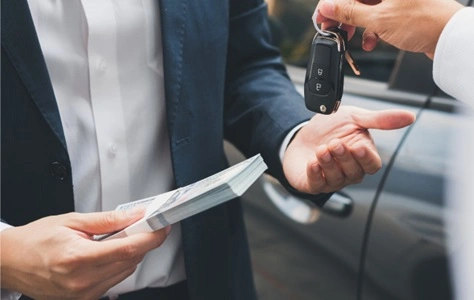No, it is not inherently illegal to sell a financed car in the United States, but specific conditions must be met for the sale to be legal. Selling a car with an outstanding loan requires coordination with the lender to pay off the remaining balance, as the lender typically holds a lien on the vehicle until the loan is satisfied.
Understanding the Legal Framework
When you finance a car, the lender has a legal interest in the vehicle, known as a lien, until the loan is fully paid. This lien prevents the car from being transferred to another owner without the lender’s consent. Here’s how the process works:
Lien holder Involvement
1. Outstanding Balance:
Before selling, you must determine the payoff amount, which includes the remaining loan balance and any associated fees.
2. Clearing the Lien:
The sale cannot be finalized until the lien is removed. Typically, this involves using the buyer’s payment or your funds to pay off the loan.
3. Title Transfer:
Once the lien is cleared, the lender will release the title, allowing the buyer to register the car legally.
State Laws
State laws govern vehicle sales and title transfers, requiring the lien to be satisfied before the title can be transferred to the new owner. Selling a car without addressing the lien could result in legal consequences, including:
- Fraud Charges: Misrepresenting the vehicle’s status as paid off could lead to criminal fraud charges.
- Civil Liability: A buyer who cannot legally register the car due to the lien may sue the seller for damages.
Selling a Financed Car: Legal Methods
1. Private Sale with Lien Payoff:
- Coordinate with the buyer and lender to pay off the loan during the sale process. The buyer may pay the lender directly, or you may use the sale proceeds to clear the loan.
- Once the loan is paid, the lender releases the lien, and the title can be transferred.
2. Trade-In:
- Dealerships can handle the lien payoff as part of a trade-in transaction. They deduct the loan balance from the car’s value and handle title transfer logistics.
3. Escrow Services:
- Some third-party services help facilitate the sale of financed vehicles by managing payments, lien payoff, and title transfer.
4. Early Payoff:
- Pay off the loan in full before listing the car for sale. This clears the title, allowing for a smoother transaction.
Risks of Selling a Financed Car Without Paying Off the Loan
Selling a financed car without disclosing the lien or arranging for its payoff is illegal and risky:
- Fraud Accusations: Concealing the lien from the buyer or failing to pay off the loan could result in fraud charges.
- Repossession: If the buyer cannot legally register the car and stops making payments, the lender may repossess the vehicle.
- Financial Penalties: You could face fines or lawsuits for failing to disclose the lien or violating sales laws.
Penalties for Illegal Sales
The consequences of illegally selling a financed car vary by state and circumstances:
1. Fines:
Sellers can face fines for fraudulent or improper transactions.
2. Criminal Charges:
In severe cases, such as intentional misrepresentation, the seller could face misdemeanor or felony charges.
3. Civil Damages:
Buyers may sue for damages, including the cost of the car, lost registration fees, and other expenses.
Recent Legal Updates and Cases
1. California, 2023:
A seller was fined $5,000 for selling a financed car without disclosing the lien. The buyer was unable to register the vehicle, leading to a lawsuit.
2. Texas, 2024:
A dealership settled a case where it improperly handled the lien payoff process, causing delays in title transfers for buyers.
3. Florida, 2024:
State lawmakers clarified title transfer requirements for financed vehicles to reduce fraud in private sales.
Tips for Selling a Financed Car Legally
1. Contact Your Lender:
Notify your lender about the sale and request a payoff quote. Confirm the process for lien release.
2. Be Transparent with Buyers:
Inform buyers about the lien and outline the steps for clearing it during the sale.
3. Use a Reputable Dealer:
If trading in or selling through a dealership, ensure they handle lien payoff and title transfer properly.
4. Obtain a Bill of Sale:
Document the terms of the sale to protect both parties in case of disputes.
Common FAQs
Q1. Can I sell my financed car without paying off the loan?
Ans: No, you cannot legally transfer ownership of a car with an active lien until the loan is paid and the lien is released.
Q2. What happens if I sell a car without disclosing the lien?
Ans: Selling a car without disclosing the lien can result in fraud charges, lawsuits, and repossession of the vehicle by the lender.
Q3. Can the buyer pay off the loan directly to the lender?
Ans: Yes, the buyer can pay the lender directly as part of the sale. This is common in private sales to ensure the lien is satisfied.
Q4. How can I check if a car has a lien?
Ans: Buyers can check a car’s lien status through the Department of Motor Vehicles (DMV) or services like CARFAX.
Q5. Can I trade in a financed car?
Ans: Yes, dealerships can handle lien payoffs as part of a trade-in process, deducting the loan balance from the car’s trade-in value.

